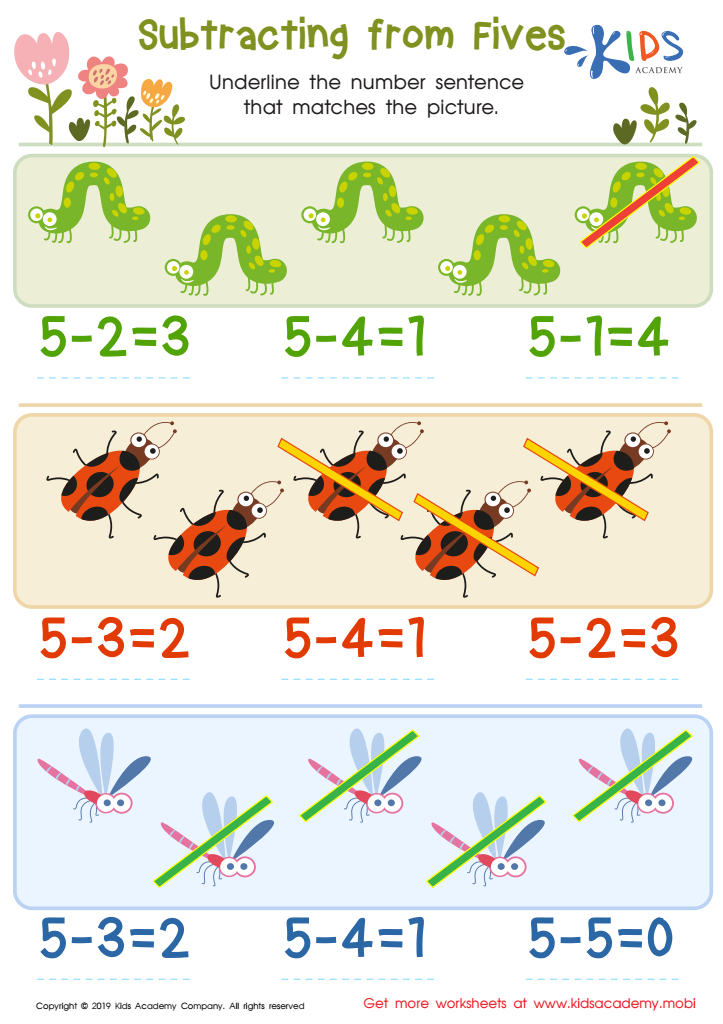Subtraction practice Addition & Subtraction Worksheets for Ages 6-7 - Page 4
73 filtered results
-
From - To


Subtracting From Fives Worksheet
Parents and teachers should prioritize subtraction practice alongside addition for children aged 6-7 as these skills form the foundation of mathematical understanding. This age is critical for developing number sense, and mastering subtraction helps strengthen overall math fluency.
By engaging in regular subtraction practice, children enhance their problem-solving skills, as they learn to analyze situations and think critically to arrive at solutions. Moreover, subtraction solidifies their understanding of numbers in relation to each other, especially when they begin to grasp concepts like 'taking away' and part-whole relationships.
Subtraction also directly supports the development of addition skills. Understanding how numbers interact through subtraction allows children to grasp the concept of inverse operations, which fosters a deeper comprehension of mathematics.
Additionally, practicing subtraction helps build confidence in young learners as they celebrate small victories while overcoming challenges. Developing numeric proficiency in these early years encourages positive attitudes toward math as students progress to more complex topics, including fractions and algebra, in later grades.
Ultimately, ensuring that children achieve proficiency in subtraction equips them with essential skills necessary for academic success, critical thinking, and real-life problem-solving.
 Assign to My Students
Assign to My Students





















